SUMMARY
This is AI generated summarization, which may have errors. For context, always refer to the full article.
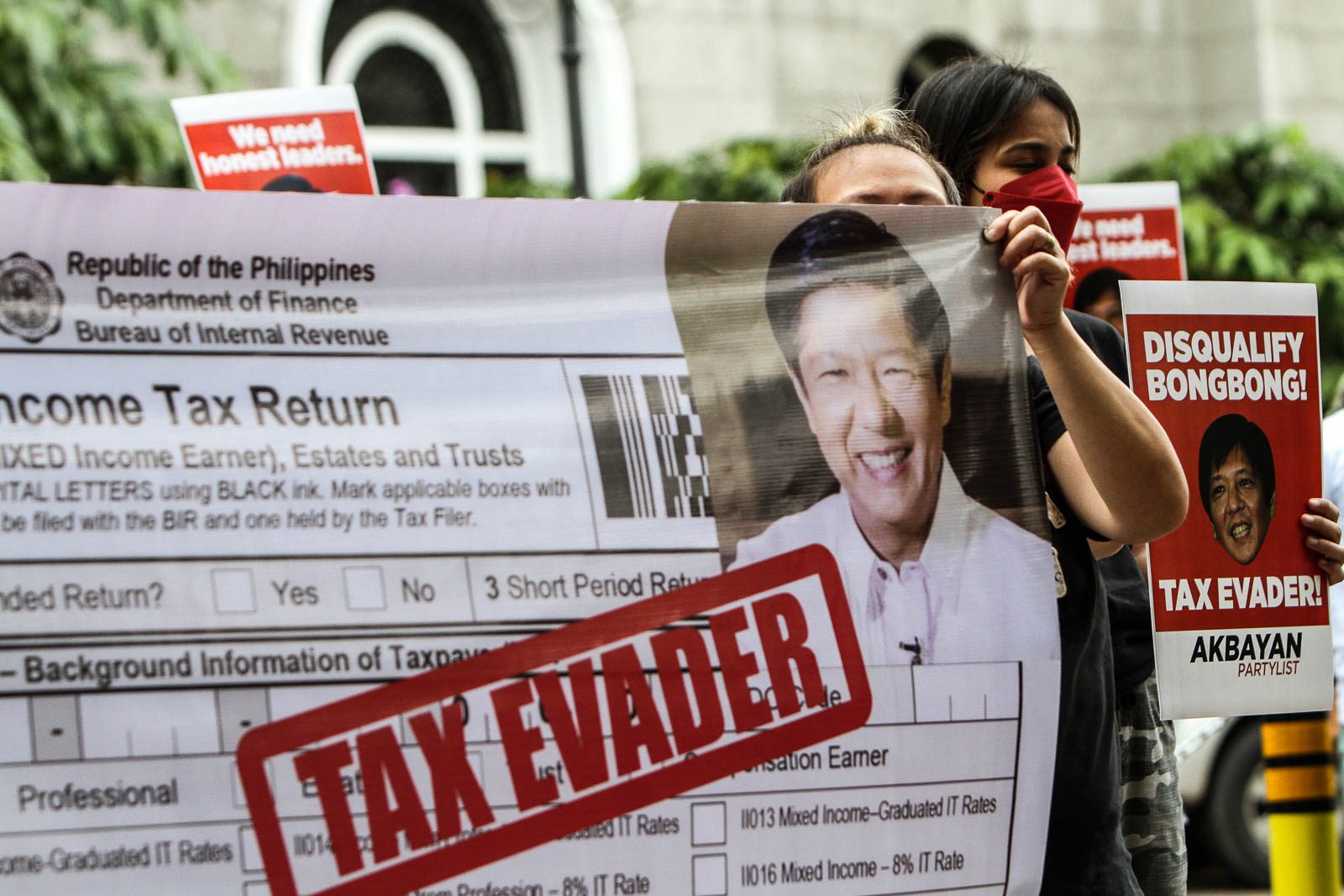
MANILA, Philippines – Three groups of petitioners in the consolidated disqualification case against 2022 presidential aspirant Ferdinand Marcos Jr. appealed to the Commission on Elections (Comelec) to reverse the 1st Division’s ruling which favored the ousted dictator’s son.
Party-list group Akbayan and their allies, as well as personalities from the Campaign Against the Return of the Marcoses and Martial Law (CARMMA), separately filed their motions for reconsideration with the poll body on Tuesday, February 15. Former officers of the Partido Federal ng Pilipinas, Marcos Jr.’s vehicle for the May vote, made a similar move a day prior.
Their appeals question, among other things, the Comelec 1st Division’s finding that Marcos Jr. did not commit a crime involving moral turpitude – a ground for disqualification under the election code – when he repeatedly failed to file his income tax returns in the 1980s. The courts convicted Marcos Jr. for that offense over a decade later.
Akbayan, in a statement, also asked Comelec Commissioner Aimee Ferolino, ponente or designated writer of the ruling, to inhibit from the en banc review, amid allegations of political interference in her decision.
The process now is this: after Ferolino and her fellow 1st Division colleague Commissioner Marlon Casquejo voted to junk the consolidated petitions, the case goes to the Comelec en banc, which is basically the full commission. Commissioners who were not members of the 1st Division will get a chance to weigh in on the case.
Petitioners insist Marcos Jr. committed moral turpitude
In justifying that Marcos Jr. did not commit a crime involving moral turpitude, the 1st Division relied on the concept of malum prohibitum, which refers to a crime that is not in itself inherently evil but was made a crime because a law was passed punishing it.
“The failure to file tax returns is not inherently wrong in the absence of a law punishing it. The said omission became punishable only through the enactment of the tax code,” the February 10 ruling read.
But petitioners insisted it is incorrect to conclude that Marcos’ non-filing of ITRs does not involve moral turpitude just because it is malum prohibitum, and not malum in se, or a crime that is inherently evil like murder or rape. They said the Supreme Court already abandoned this in favor of more recent jurisprudence.
“That the Honorable 1st Division ruled that failure to file a tax return is not inherently wrong on the basis that it is merely mala prohibita disregards the baseness, and vileness, of a deliberate act of cheating the government of its lifeblood,” the CARMMA petitioners said.
Petitioners also asserted that moral turpitude is not limited to crimes that involve fraud, after the 1st Division had found that there was no fraud, only omission, in Marcos Jr.’s repeated non-filing of ITR.
“[Marcos Jr.’s] refusal to file income tax returns could have been excused as one not involving moral turpitude on the first offense. However, he continued to violate the law for a total of four years. This was an offensive display of his utter disregard of the law,” the petitioners from Akbayan argued.

Petitioners say perpetual disqualification under tax code applies to Marcos Jr.
The Comelec ruling had not found sufficient merit in the petitioners’ argument that Marcos Jr.’s tax conviction from the Court of Appeals in 1997 resulted in his perpetual disqualification from public office.
But petitioners, in their appeal, asserted that the penalty of perpetual disqualification did not have to be explicitly written in the CA decision for it to apply to Marcos Jr. They said the sanction was already part of the amended tax code in 1986, which covered his non-filing of ITR for the taxable year 1985.
“The interpretation that perpetual disqualification is a separate and additional penalty is dangerous because it allows the judge not to impose a penalty even if it is couched in mandatory language, without the responsibility and accountability of justifying its exclusion,” the petitioners from Akbayan said.
CARMMA petitioners, meanwhile, argued that when the accessory penalty of perpetual disqualification took effect in 1986, Marcos Jr. became liable for the “continued violation of his legal obligation,” because at the time, he still had not filed his tax returns from years when the penalty was not yet introduced.
“This is not a case of making a penal law retroactive in application. Merely applying the law in effect in 1986, for violations he was continually committing in 1986, therefore does not fall within the ambit of an ex post facto law,” the petitioners from CARMMA said.
The petitioners from Akbayan also insisted that Marcos Jr. was given a three-year prison sentence over his tax conviction, even despite the penalty’s absence from the CA ruling.
“The petitioners are not arguing that the decision of the Court of Appeals should be modified. Instead, the petitioners maintain that the said decision did not remove the penalty of three years imprisonment meted out by the Quezon City Regional Trial Court,” the appeal read.

Other arguments
The petitioners from CARMMA told the Comelec it should not have considered evidence filed by the Marcos camp on January 13, four days past the deadline.
These include what they described as a “questionable” receipt which supposedly showed that Marcos Jr. already settled his deficiency taxes and fines.
“To reiterate, the Bureau of Internal Revenue cannot certify payments that are due to the courts. In satisfying court judgments, an order of payment must come from the courts before payment may be made,” they said.
Petitioners from Akbayan, meanwhile, argued that the 1st Division’s decision is invalid because only two commissioners voted instead of three. The 1993 Comelec Rules of Procedure, however, stated that two members in a division constitute a quorum already.
What happens next?
The Comelec’s clerk of court has 24 hours from Tuesday to notify Casquejo, the case’s presiding commissioner, who has then two days to certify the appeals for the en banc.
The consolidated case adds to the growing list of unresolved petitions that are the subject of en banc reviews, namely:
- Lihaylihay vs Marcos – petition to declare Marcos Jr. a nuisance candidate, junked by the Comelec 2nd Division
- Buenafe et al vs Marcos – petition to cancel Marcos Jr.’s candidacy papers, junked by the Comelec 2nd Division
Another disqualification case, filed by an Ilocano group whose lawyer is former Comelec chairman Christian Monsod, is pending with the 2nd Division. – Rappler.com
Add a comment
How does this make you feel?

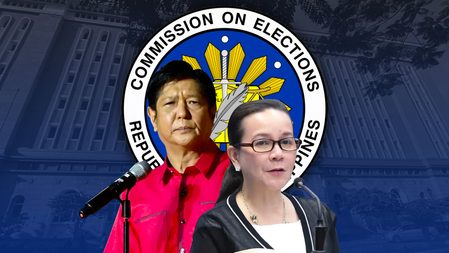





![[Newspoint] Improbable vote](https://www.rappler.com/tachyon/2023/03/Newspoint-improbable-vote-March-24-2023.jpg?resize=257%2C257&crop=339px%2C0px%2C720px%2C720px)
![[Newspoint] 19 million reasons](https://www.rappler.com/tachyon/2022/12/Newspoint-19-million-reasons-December-31-2022.jpg?resize=257%2C257&crop=181px%2C0px%2C900px%2C900px)
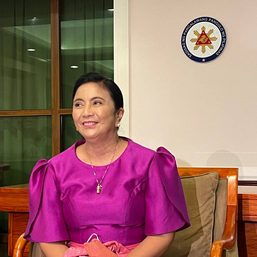




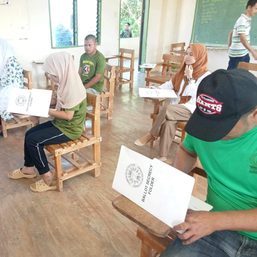


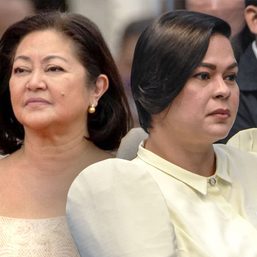
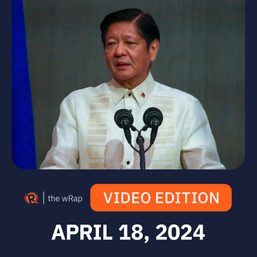
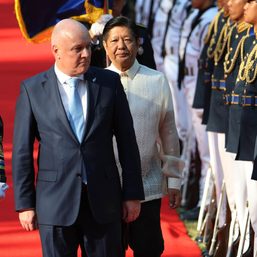
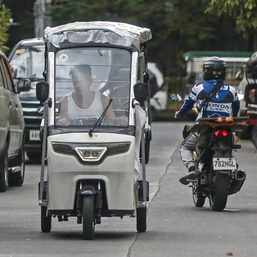
There are no comments yet. Add your comment to start the conversation.